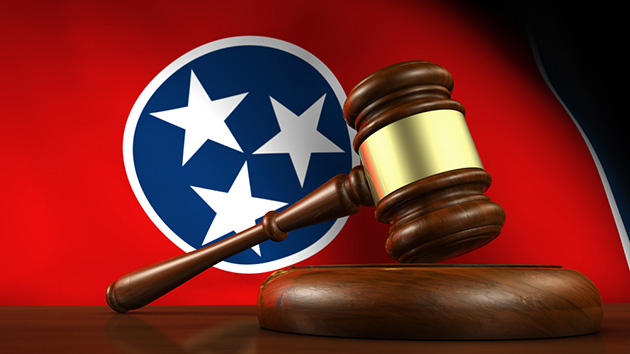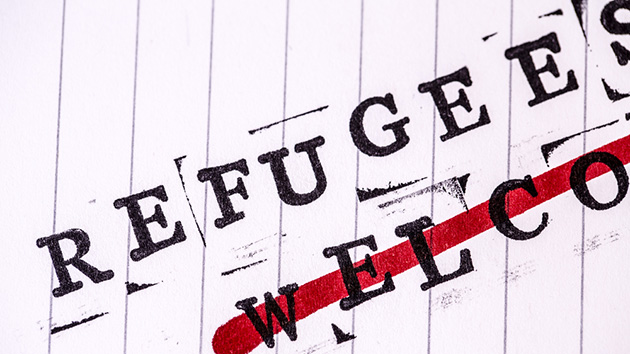
<a href="http://www.istockphoto.com/photo/holy-bible-with-american-flag-gm181153743-25691076?st=9141c6b">200mm</a>/iStock
Update (6/3/2016): On June 2, this bill died in a committee in the South Carolina House of Representatives, where it had stalled after religious and immigrant rights groups criticized it.
A South Carolina bill that would create a registry of refugees and would hold their sponsors liable for any crimes they commit has sparked a debate over religious liberty in South Carolina.
The bill, which would require all recently resettled refugees to register with local law enforcement, would also hold each refugee’s sponsors liable if he or she commits a violent crime or an act of terrorism. “We are protecting South Carolina citizens’ safety,” State Sen. Kevin Bryant, one of the bill’s lead sponsors, told members of the local press. “And if we have to do something that would de-incentivize the sponsoring of refugees, well, we’ve got to choose our own citizens over those that are not citizens of this country.”
Some religious groups have denounced the bill as a violation of their First Amendment freedoms because it infringes on their belief in caring for those in need. “We’re a Christian organization,” says Ted Goins, the president of Lutheran Services Carolinas, one of the state’s two main sponsors of refugee resettlement. “We get our marching orders from a biblical perspective. It says we’re to love our neighbors as ourselves. Refugees are our neighbors.”
Shortly after the Paris terrorist attacks in November, South Carolina Gov. Nikki Haley joined 30 other governors to call on the federal government to halt the resettlement of Syrian refugees in the United States. Haley, a Republican, sent a letter to Secretary of State John Kerry requesting that Syrian refugees not be resettled in her state due to “concerns with the vetting process.” In March, the South Carolina Senate overwhelmingly passed the refugee registration measure. The bill went to the House last week.
The bill’s liability provision states that if a refugee commits a violent crime, his or her official sponsor may be compelled to compensate the victims. Advocates for refugees say that is a solution in search of a problem. World Relief, South Carolina’s other main resettlement sponsor, has resettled more than 260,000 refugees since the late 1970s; none have been charged with terrorism, according to Matthew Soerens, the organization’s US director of church mobilization. The same is true for Lutheran Services Carolinas, which has resettled more than 10,000 people in North and South Carolina since 1979.
Numerous studies have shown that immigrants are less likely to commit violent crimes than native-born Americans. All refugees who apply to live in the United States must be vetted by the National Counterterrorism Center, the FBI, the State Department, and the Department of Homeland Security.
If it passes, the bill would also require the Department of Social Services to submit detailed personal information about new refugees, including their addresses, phone numbers, employment information, and how much government assistance they receive. The database of refugees, which could be the first of its kind in the nation, was originally supposed to be made public. However, the bill was amended to limit access to the registry to law enforcement and the social services department.
As the anti-refugee bill makes its way through the legislature, more religious leaders have publicly condemned it. A coalition of bishops from four different denominations sent a joint letter to Gov. Haley and lawmakers criticizing it. Both World Relief and Lutheran Services have come out against it. Russell Moore, president of the Southern Baptist Ethics & Religious Liberty Commission, told the Baptist Courier that the effort discourages churches from “freely exercising their religion.” In an op-ed, the Rev. Blake Hart, missions coordinator for the Cooperative Baptist Fellowship of South Carolina, wrote, “In a state with 67 percent regular church attendance, one should expect a great outcry against a bill that attempts to curtail that institution’s right to practice its religion, which clearly includes care for the marginalized of the world, such as refugees.”
“As a Christian, I would never put myself in a contract that prohibited me from sharing the Gospel,” Sen. Bryant says in an interview. The Republican from Anderson County says that because the bill holds resettlement groups, not individuals, liable, it does not infringe on religious liberty. He says because resettlement groups sign a contract with the federal government in which they agree not to proselytize to refugees—more or less promising to act in a nondenominational capacity—they have given up all claims to religious liberty.
Bryant, a born-again Christian, says he has been able to separate his faith from his work on this bill. He says he would rather donate to organizations who help refugees in the Middle East and North Africa. “My role in the government is to protect South Carolinians. My role as a Christian is to personally support different ministries that reach out to refugees,” he says. “I think we need to separate the commands of Christ from the role of government.”
(Bryant is also a staunch foe of same-sex marriage. His website describes him as “wholeheartedly committed to the sanctity of marriage as prescribed by our Creator.” He has sponsored a state constitutional amendment defining marriage as a union between a man and a woman, noting that “God even uses marriage to define the relationship with Jesus Christ and His church.”)
Last December, Lutheran Services Carolinas resettled two Syrian refugees, the only people from the country to be placed in South Carolina since the Syrian civil war began five years ago. Afterward, the Ku Klux Klan plastered leaflets around the organization’s neighborhood, warning of an “Islamic invasion” and listing Lutheran Services’ address and phone number on their flyer. “We’ve had a good bit of hate mail—which we’re not used to,” Goins says.
Although refugee resettlement has become heavily politicized, Goins see his organization’s mission as an obligation that rises above the fray. “We feel very strongly that we’re walking together with refugees who are coming to escape death or persecution in their home,” he says. “And I live and breathe that every day.”
















